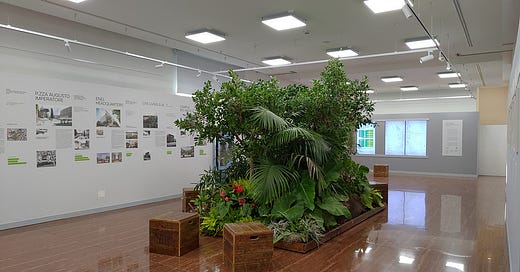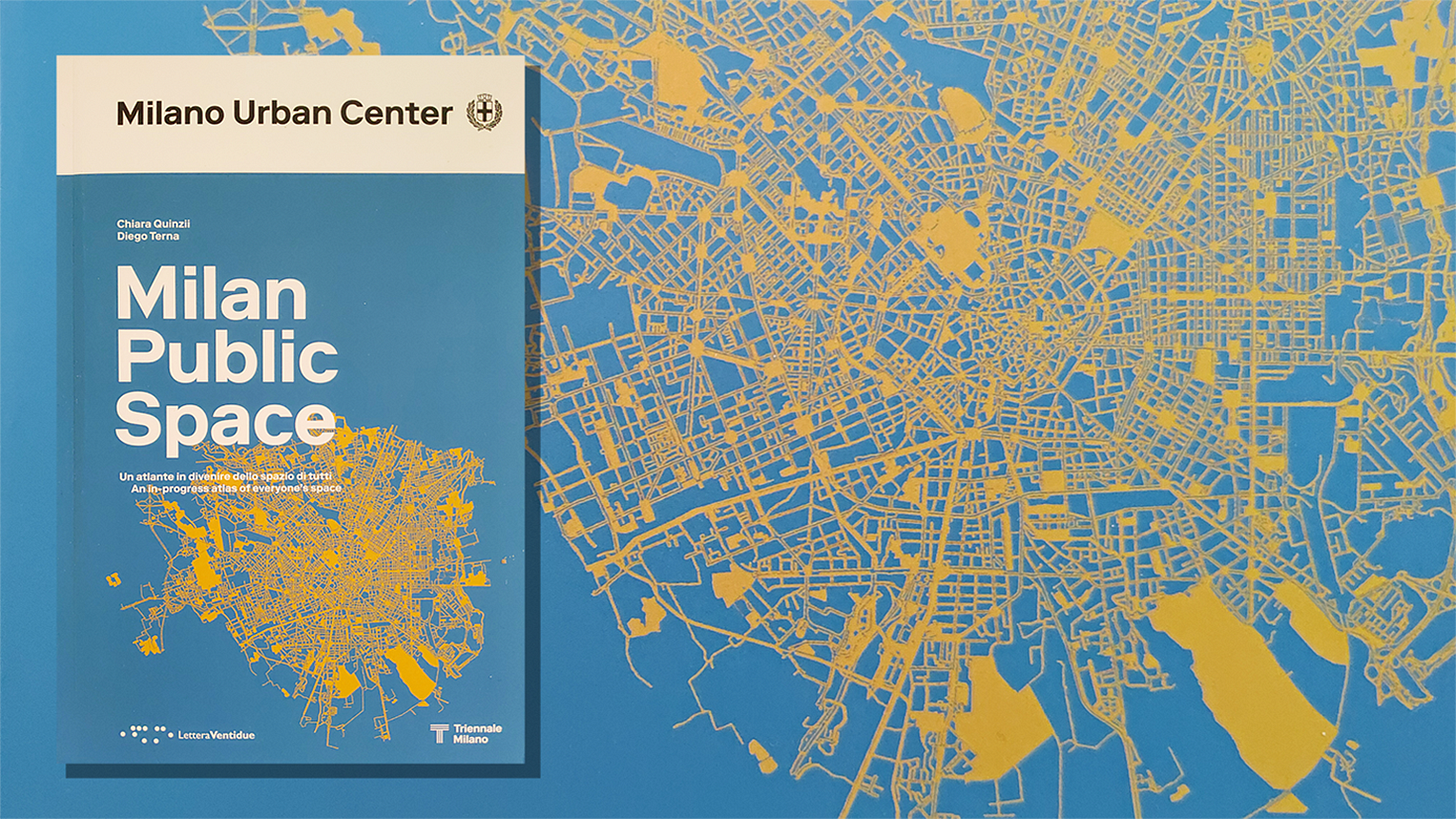The world of design and creativity is providing inspiration for reflections about re-interpretations and new ways of looking at the city, as a result of research born in the light of the changes of the last two years.
Below is a selection of the most stimulating contributions from Rome, Milan and Turin, three cities whose complexity has always been fertile ground for a rich and fascinating debate on the future of the urban landscape.
ROME - Riscatti di città (Cities Redemption)
Palazzo Merulana is a symbol of the regeneration of the city of Rome, it hosts Riscatti di città, an exhibition project about contemporary urban development of Rome. Curated by TWM Factory and H501 City Hub, in collaboration with CoopCulture.
Since 2019, the young creative hub TWM Factory has been focusing on the exploration of the city of Rome, targeting places and methods of regeneration. The exhibition displays two large maps, one dedicated to abandoned buildings and redeveloped places (around 430) and the other one to informal cultural centers (more than 250) which, as Nicola Brucoli, one of the curators, explains: “informal cultural centers are demonstrating their regenerative power of territories and communities, just think that 30% of these have opened in the past two years and that more than 50% are run by people under the age of 35".
The two maps are also available online on the interactive crowd-mapping platform https://riscattidicitta.firstlife.org/ co-created with the Computer Science Department of the University of Turin, using the FirstLife tool (see Cartolina n°27). The online maps tool represents an opportunity to involve citizens in mapping and as well as in testing new models of governance that allow all urban actors to be active players in the process of social recovery, eco-centredness and digital transition of the contemporary urban environment. In addition to the maps, the exhibition includes two photographic projects, a series of illustrations, a green installation and a gallery of ongoing projects in the field of urban planning and sustainable mobility, an urgent issue, especially in a complex city like Rome.
The mix of examples and projects, research and media suggest that “Riscatti di città” is an opportunity to build a collective dialogue, in which young people are the key actors. (It should be the responsibility of the institutions involved, the politicians and also of the economic world to capitalize on the ideas brought together by this exhibition project)
Nowadays, regeneration is a choral action that crumbles as soon as the soloists impose themselves by virtue of better performances. It is time to subvert the narrative!
For info on the exhibition and for the calendar of related events: https://riscattidicitta.it/
MILAN - Milan Public Space
The Quinzii Terna Architecture Studio has carried out in-depth research on Milan’s public space, gathered in an "atlas in the making of everyone's space".
Since the spring of two years ago, when our lives were relegated to the private space due to a global pandemic, the issue of public space has suddenly become urgent and the subject of great attention. But in order to engage in a discussion, it is important to know what we are talking about. So the first question is: Do we know public space? Apparently not, since, as Chiara Quinzii and Diego Terna have pointed out, there is no mapping of 'everyone's space', and there are no databases, catalogues and censuses. So how can we manage and improve something that we do not know? For this reason, the two architects have taken the initiative and, starting with aerial photos and field explorations, created the most comprehensive “atlas of everyone's space” ever designed before.
During the process, they realised that the atlas was not only a tool, but a way to discover territories, to work with and for communities, to know the 'tangibility' of urban and public landscape and to give voice to our need for public space. The power of this research lies in the ability to make us get to know the places of proximity where citizens express themselves, identify and establish relationships, and to provide information that all cities need to reinvent themself in a sustainable and participatory way.
In addition to Milan, the project has involved institutions and universities in the Netherlands, China and Honduras (for each of which a similar atlas has been created), and will soon be implemented in other Italian cities. The comparison of the atlases allows us to discover different uses and experiences of public space, while the scalability of the project is demonstrating the importance of tailor-made, context-specific strategies.
As the authors stated: “the project is useful for reflecting on the urgency of creating a department for public space in each city that is constantly dedicated to studying and monitoring everyone’s space".
Fingers crossed for a revolution of public space!
TORINO - Foodification
"Foodification - How food has affected urban transformation". This is the title of the ironic and provocative book of the homonymous collective from Turin, born in 2017 from the collaboration between Paolo "Tex" Tessarin and Marco Perucca.
Foodification (which not coincidentally rhymes with gentrification) offers, with different forms of expression, critical thinking about the way institutions intend the city and the side effects of regeneration policies. In the paragraph about Rome, we mentioned regeneration as a choral action that crumbles as soon as soloists impose themselves: according to Tessarin and Perucca food is one of them and it is destroying the city. As described in the series of dystopian tales, inspired by the reality of the city of Turin and oscillating between "a joke, a sneer and a wink", we are facing a major misunderstanding: the simple solution to the complex problem of balancing well-being, quality of urban life and the economy seems to be make the city attractive and consumable.
This is a real dilemma that has been with us for decades and is now, in the post-pandemic scenario of conflict and sustainable goals, more urgent and difficult than ever. Foodification uses different tools, from theatre to writing, from music to podcasts, to describe the phenomenon of "the city as a product" and to give voice to our discomfort.
Foodification’s narratives are based on everyday anecdotes, which everyone will have experienced at least once. They are amusing, ironic and engaging, but leave a bitter taste underlining that: "it's all a hustle and bustle of staging a post-classist, trans-classist, democratic, universalist, open society that collapses one looks at it closely [...] and food, with its cosmopolitan complacency, pretends to erase social differences while they are more present than ever".
These stories help us recognize the warning signals of a political rhetoric that aims to use the city as a product and that very soon, or probably right now, is creating a hostile and unlivable urban environment. As the authors remark: "We urgently need to train our eyes to be disenchanted, sometimes cynical, or at least unwilling to be fooled by the fashion gurus of the moment".
PS: Marco Perucca and Paolo "Tex" Tessarin will present the book “Foodification” at Off Topic (Via Pallavicino, 35 - Torino) on Wednesday 27th April - 8:00 PM. More info here.
If you’ve read this far… THANK YOU!
If you liked this post, why not share it?
and if you have any comments or suggestions, write us!
See you for the next Postcard!










